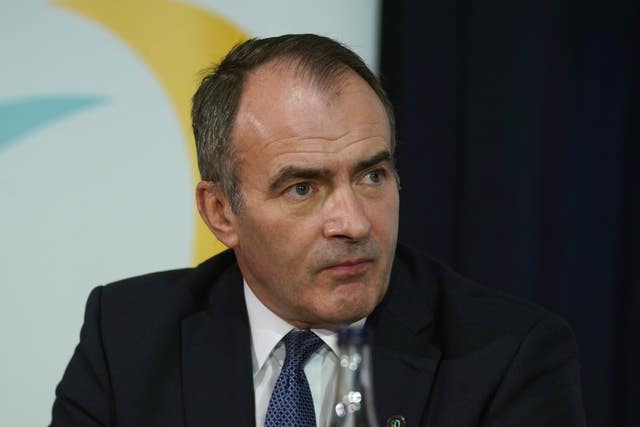Proposed Isle of Man assisted dying service ‘takes another landmark step’
An assisted dying service on the Isle of Man has taken “another landmark step”, the doctor behind a prospective new law has said.
The wording of the Assisted Dying Bill was being debated on Tuesday, on the second day of its clauses stage.
A move to make it separate from the island’s public health service, Manx Care, was voted down after a lengthy discussion by Members of the House of Keys (MHKs).
Dr Alex Allinson, who is behind the Bill, said: “After extensive debate and evidence taken from expert witnesses, the House of Keys approved another landmark step in delivering assisted dying in the Isle of Man.
“Debate on the way medications are dispensed and administered will continue in June as Manx politicians refine legislation to allow for wider end-of-life discussions and choice.”
In the first stage of debate on the clauses stage of the Bill last week, MHKs voted that a person seeking an assisted death should have been resident on the island for five years instead of one, and that the life expectancy criteria be extended from six months to a year.
Earlier on Tuesday, giving evidence to the MHKs, Baroness Finlay, an expert in palliative care and a peer in the UK House of Lords, described the Bill as “not workable” in its current form.
She said she had looked after “many thousands of dying patients over many, many years”, and added: “I would have to say that I think, at the moment, as it’s written, it’s not workable.”
Lady Finlay added that doctors on the Isle of Man “are clearly against this and they want it operated outside of Manx health” as she told MHKs it is “really important that you listen to them”.
In a statement issued last month, the Isle of Man Medical Society (IOMMS) said it had concluded the Bill was “manifestly unworkable in practice, appears to be rapidly forced through with the sole aim of being the first British Isles jurisdiction to legalise, with scant regard to the damaging effects on Manx society and despite an unwilling Manx population”.
Dr Allinson has previously insisted it is “not a race” and is about getting the law right on a controversial issue.
The clauses stage will continue on June 11 with debate on further amendments.
Chief minister Alfred Cannan has proposed that the overall Bill would have to be put to a referendum before becoming law.

Dr Allinson described assisted dying as a “serious and extremely important issue”, and said he appreciated the “dedication members have shown throughout the process of bringing this Bill to the House and the contribution from members of our community with all points of view”.
If voted through, the Bill could receive a third reading in the House of Keys in summer, before moving to the parliament’s Upper House.
Campaigners have said if the Bill gains royal assent next year, assisted dying could be available to eligible Manx residents from 2027.
Next week, the States Assembly in Jersey will debate assisted dying proposals, with a vote expected on whether to proceed with drawing up legislation.
A Bill was published in March at Holyrood that, if passed, would allow people living in Scotland with a terminal illness to be given help to end their life.
A Westminster Hall debate was held in London last month, after a petition backed by Dame Esther Rantzen – who has spoken out strongly in support of a change in the law in the UK.


